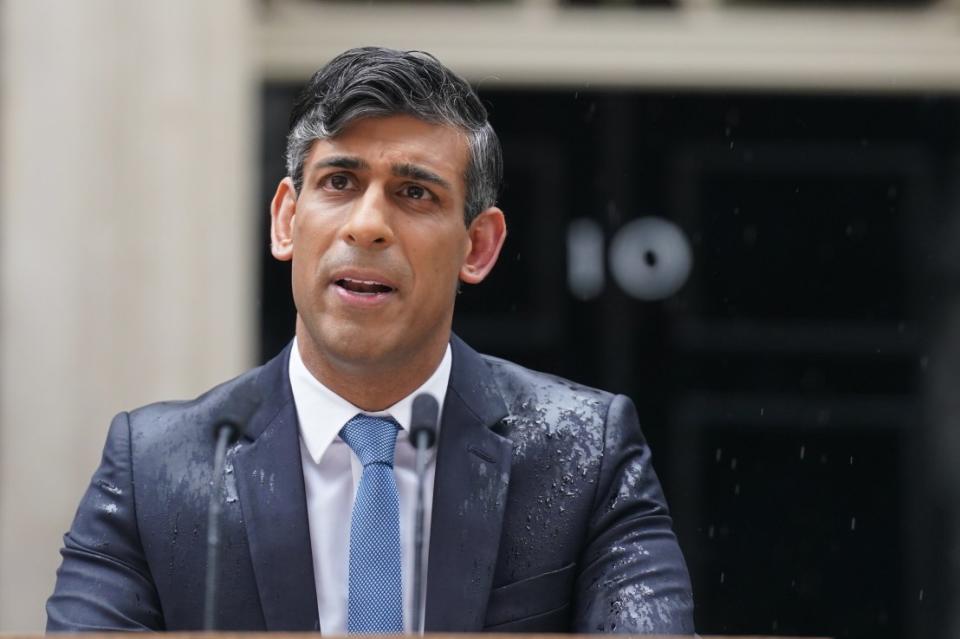Election 2024: No party has ever come back from this far behind – but anything can happen

Rishi Sunak has clearly decided that the risks of waiting outweigh the dangers of calling a general election when the polls are so dire, says Henry Hill
There was a case, despite the state of the polls, for Rishi Sunak calling an early election. From the Conservative Party’s perspective, going to the country in May (to coincide with the locals) made a lot of sense.
It would lift turnout, hopefully amongst disaffected Tory voters who aren’t going to vote for anyone else but were not sufficiently motivated to join the civic-minded minority who cast their ballots in local elections. In large parts of the country the party would have been out in force, fighting for their own positions in town halls.
Once the window of opportunity for such an election closed, it seemed all but settled that the Prime Minister would go to the country in the autumn: pass his two-year anniversary in the job; hold another fiscal event loaded with pre-election goodies; hope some good news turned up.
But there isn’t an obvious case for calling an election now, specifically. Yes, the most recent inflation announcement is good news – but it will take time for the benefits to be felt by voters, especially homeowners with mortgages who have been feeling the squeeze.
Likewise, the passing of the Safety of Rwanda Bill is a victory of sorts for the Prime Minister and his team, but such procedural wrangling does not quicken the electorate’s pulse – and no plane has yet taken off.
So what’s happened? The most likely answer is simply that Sunak and his advisers have looked at the next six months and decided that the risks of waiting outweighed any possible advantage.
Perhaps they’re right. The summer will see the annual surge in Channel crossings; it’s only a matter of time before one of the prisoners ministers have released early to free up prison spaces re-offends. Developments in Ukraine, the Red Sea, or another global flashpoint could shock the world economy.
Even so, this is an extraordinary moment. When Theresa May called a snap election in 2017, she was at least 20 points ahead in the polls; the Government, by contrast, is 20 points behind. That’s the sort of margin where first past the post starts doing very strange things; Tory MPs sitting on what ought historically to be comfortable majorities have just been plunged into the fight of their lives.
There’s nothing they can do about it, though. There has been some fevered speculation (when is there not?) that MPs might be sending letters in to Sir Graham Brady to try and trigger a leadership contest. But the Conservative Party’s internal procedures do not trump the Prime Minister’s constitutional prerogatives; all a leadership challenge would do is disembowel whatever election campaign CCHQ can put together.
A few weeks is a long time in politics, of course. Maybe better economic conditions (and nicer weather) will lift the mood of the voters. But there is no precedent for a party coming back from a polling deficit on this scale.
May threw one way in 2017, but that is much easier to do from government than from opposition. It’s difficult to imagine the sort of self-inflicted wound that could cost Sir Keir Starmer the keys to Downing Street at this point.
Regardless, it is done. Perhaps the white heat of the campaign will unite Sunak’s divided party and let the Government go down swinging, rather than bleeding out from a thousand cuts over the next six months.

 Yahoo Finance
Yahoo Finance 